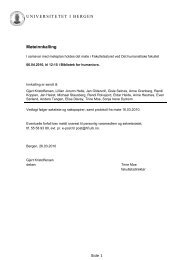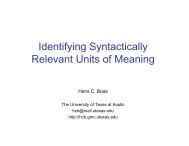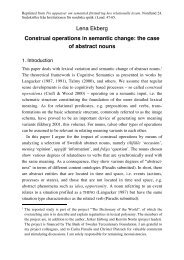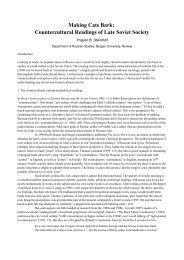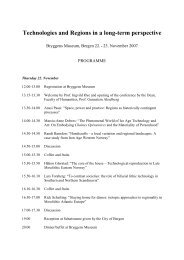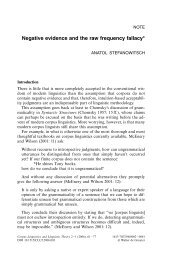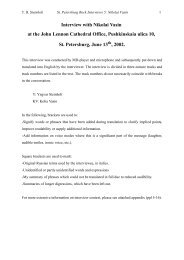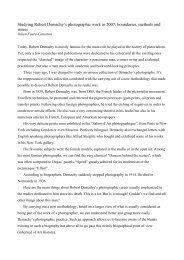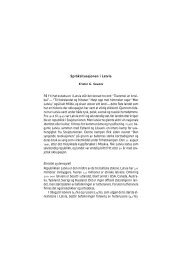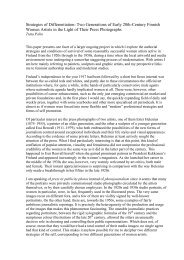THE BOOK OF POEMS IN TWENTIETH-CENTURY ... - TopReferat
THE BOOK OF POEMS IN TWENTIETH-CENTURY ... - TopReferat
THE BOOK OF POEMS IN TWENTIETH-CENTURY ... - TopReferat
Create successful ePaper yourself
Turn your PDF publications into a flip-book with our unique Google optimized e-Paper software.
an attempt to attain spiritual enlightenment. As a poet, Shvarts has tremendous respect,<br />
even reverence for words, but her ultimate project is greater than language. 204<br />
In the<br />
end, it is not the words she seeks, but the revelation which can eliminate the need for<br />
those words.<br />
The final epigraphs to Lavinia deal with the poet's role as seeker of truth. The<br />
seventh epigraph, from Безумный Линь, suggests Shvarts's embarkation on her journey<br />
of discovery: У входа в пещеру/Играю с клубящимся туманом (At the entrance to the<br />
cave/I play with the swirling fog). The entrance to the cave can be read as a metaphor for<br />
the entrance to the book of poetry. At this stage, Shvarts is playing with swirling fog—<br />
the words have not yet provided an overall shape or meaning. The following epigraph,<br />
taken from Aleksandr Mironov's verse introduction to his Метафизические радости,<br />
predicts a ruinous end to the poetic journey. In the poem, Mironov describes the<br />
simplicity and purity of incorporeal poetic wanderings from silence to spiritual fruition:<br />
Как бестелесны и просты/плутанья наши—/от новой страшной немоты/до Новой<br />
Чаши. Once the Word of God has been corrupted by the flesh of letters and human<br />
language, however, the promised Chalice turns into a small, and hollow cup, the object of<br />
Shvarts's epigraph: И снова станет небольшой и полой чашей. Shvarts alters the<br />
original text slightly, replacing снова with скоро, again pointing out the incipient nature<br />
of her book. By citing Mironov's poem, she suggests that Lavinia's poems are not the<br />
204 When asked what language means to her, Shvarts responded: Для меня язык прежде всего слуга. Я<br />
очень люблю язык, его богатство, его возможности. К сочинению стихов я отношусь как к<br />
сакральному, священному акту, когда происходит слияние каких-то сил, идущих не только от меня,<br />
и даже в меньшей степени идущих от меня, а гораздо больше еще откуда-то. И постольку,<br />
поскольку действуют совсем какие-то другие силы, они пробуждают и языковые скрытые пласты и<br />
все, что угодно, другое, когда это нужно. Polukhina, Brodsky, 206.<br />
152



